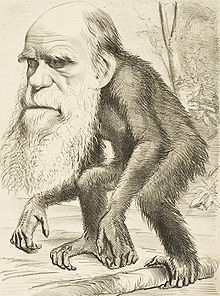Richard Dawkins described Pope Benedict as “a leering old villain in a frock who spent decades conspiring behind closed doors for the position he now holds; a man who believes he is infallible and acts the part” and the Catholic Church as a “rotten edifice – the whole profiteering, woman-fearing, guilt-gorging, truth-hating, child-raping institution. “
Dawkins is not only entitled to his opinion – however fatuous – but also entitled to publish it, something he did with a degree of relish that would probably have been absent had he been slandering a pillar of Islam.
The Pope’s visit to Britain has inflamed the pious sensibilities of numerous atheists, many of whom signed a letter to the Guardian bewailing the fact that the Pope acts and speaks like a Catholic and claiming he didn’t address the child abuse problems in the Church – even though he did.
Pope Benedict, in his address at the Palace of Holyroodhouse, Edinburgh pointed out that:
Even in our own lifetime, we can recall how Britain and her leaders stood against a Nazi tyranny that wished to eradicate God from society and denied our common humanity to many, especially the Jews, who were thought unfit to live. I also recall the regime’s attitude to Christian pastors and religious who spoke the truth in love, opposed the Nazis and paid for that opposition with their lives.
As we reflect on the sobering lessons of the atheist extremism of the twentieth century, let us never forget how the exclusion of God, religion and virtue from public life leads ultimately to a truncated vision of man and of society and thus to a “reductive vision of the person and his destiny”
All perfectly true since Hitler and his Nazis were not so much atheists as anti-theists – against God – just as Christopher Hitchens and Richard Dawkins are. Hitchens and Dawkins would protest that they are not Nazis, but they are unable to point to an objective standard of right and wrong that would tell them that they shouldn’t be. A Hitler Youth marching song goes like this:
We follow not Christ, but Horst Wessel,
Away with incense and Holy Water,
The Church can go hang for all we care,
The Swastika brings salvation on Earth.
Horst Wessel was a Nazi party street-fighter murdered by communists and turned into a martyr by Josef Goebbels.
Also, the 20th century leaders that have been inspired by a rejection of God: Mao, Stalin, Kim Jong-il, Pol Pot have ruthlessly slaughtered more people in 100 or so years than all the tyrants that preceded them put together . This is not particularly surprising: Christianity teaches that each person is made in God’s image – they are shaped by God; atheism teaches that each person has no created essence other than that of a clever animal and therefore can be shaped and moulded by force. The fact that Mao, Stalin and Pol Pot failed is testimony to the fact that they were wrong: a person does bear God’s image.
None of this matters to atheists, who, when not occupied with hurling abuse at the Pope in fits of irrational pique that would embarrass a 3 year old, become quite hurt and hysterical when someone has the effrontery to challenge their cherished articles of unbelief:
The British Humanist Association was quick to respond to the Pope’s remarks, noting in a statement: “The notion that it was the atheism of Nazis that led to their extremist and hateful views or that it somehow fuels intolerance in Britain today is a terrible libel against those who do not believe in God.
“The notion that it is nonreligious people in the U.K. today who want to force their views on others, coming from a man whose organization exerts itself internationally to impose its narrow and exclusive form of morality and undermine the human rights of women, children, gay people, and many others, is surreal.”
Richard Dawkins fumes:
I am incandescent with rage at the sycophantic BBC coverage, and the sight of British toadies bowing and scraping to this odious man. I thought he was bad before. This puts the lid on it.
Thank you, BBC: anything that makes Dawkins “incandescent with rage” deserves all the license fees it can get.
Like this:
Like Loading...






